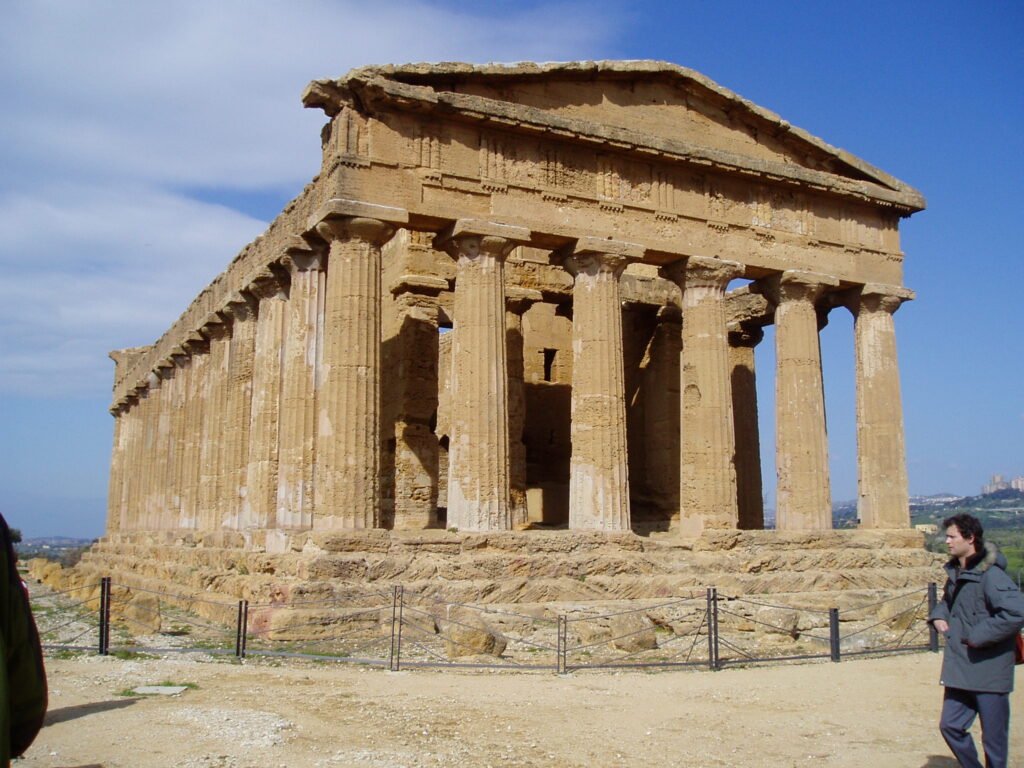Bird's Eye View: An Ancient World History Timeline
Eons ago, there was one continent — wait, too far back for an ancient world history timeline.
Let’s start a little later, in Ancient Europe, the Middle East (or Near East / Asia Minor), Egypt, and North Africa.
And for the purposes of this website, we’ll also be focusing on Greco-Roman society. That’s an important thing to keep in mind when learning about humanities generally. Other periods are great, but you have to focus.
(Again. Not that Mesopotamia isn’t cool. But Persian, Near Eastern, and Egyptology are different areas.)
Here’s a brief chronology.
But once upon a time, some several thousand years before the common era, there was a proto-civilization group called the Indo-Europeans. They spread throughout Europe and the Indus Valley Civilisation region (India) and became home of — and neighbors to — many awesome civilizations. Early human migrations were like that.

And then the Greeks Enter the Ancient World History Timeline
In Greece lived people who weren’t Greek — we don’t know much about them. We can’t read their language (Linear A) yet. But they’re the Minoan civilization (based on Crete) and whoever lived on the mainland.
Eventually, the Greek Greeks came and settled the land — building the magnificent Bronze Age Mycenaean Civilization. We can read their writing (Linear B). What a time to be alive!
Unfortunately civilization crashed around this era — fires, sea peoples, earthquakes, and some combination of the above. The entire eastern Mediterranean sea experienced this collapse. Including Troy! Maybe the Trojan War had a hand.
The Greek world went into the Dark Ages, losing its written language but leaving behind the oral history and epic poetry mythologized in Homer’s Iliad and Odyssey.
The march of ancient history continued: the Archaic Period became the Classical Period. Classical Greece is what we mostly think about. Each Greek community — Athens, Sparta, Corinth, Thebes, and more — developed its own system of law and government. Athenian democracy became famous. Some grew to spread colonies around the Mediterranean Sea.
The Greek colonies on the west coast of Anatolia (Turkey) caught the eye of the Persian kings and led to several wars that surprisingly ended worse for Darius the Great and Xerxes than the Athenians and Spartans (Battle of Thermopylae notwithstanding).
But then the glory of Ancient Greece had the city-states (in Greek, polis) fighting with each other, and not just in the Ancient Olympic Games.
The Peloponnesian War brought Athens low, not that Sparta really fared super well, either. It made a good time for Philip, Alexander the Great, and Macedonian to start its run south and east.
The Hellenistic Period: the Great Hiatus in the Ancient World History Timeline
People normally stop studying the Greeks now, and don’t pay attention until the Romans enter the picture again with Cleopatra, Queen of Egypt.
So I’ll keep this summary short.
Alexander the Great lived fast and died hard. So long, Achaemenid Empire founded by Cyrus the Great. Alexander the Great left no direction for his dynasty, so everything he conquered went broken up between different groups — the Ptolemaic kingdom, the Seleucid dynasty, and so on.
Ptolemy ruled Egypt, and his descendent was Cleopatra. She’s a famous pharaoh — even though she wasn’t Greek or Egyptian. She was a Macedonian.
Meanwhile in the Western Mediterranean Sea: The Founding of Rome
Back up a few hundred years, and two random twins are saved by a wolf and found Rome. First there are kings (7 of them), and they get such a bad reputation because they get crazier and crazier, Rome prefers tyrants over kings.
After the Kings came the Republic.
After the Republic came the Empire.
During these political transitions, Rome grew from an itty bitty city to a great power, facing against other cultures in Italy, against Carthage in the Punic Wars, and overpowering Cleopatra at the Battle of Actium.
The exact transition between Republic and Empire is a little unclear. There were decades of Civil War, and eventually Julius Caesar and his heir Augustus (Octavian Caesar) brought stability to Ancient Rome. Who was the first Roman emperor? Take your pick. Many more emperors came and went. Some were good (Trajan), some were bad (Nero), some were their own thing (Hadrian). The last emperor was Romulus Augustulus.
The Empire evolved into a different sort of empire after the fall of the Western Roman Empire — the Holy Roman Empire — and that met with its own issues against the Ottoman Empire.
Nothing lasts forever, not even the Roman Empire, and soon the powerful families in Europe took control of their own politics.
Now we’re finally deep into the Middle Ages and the Renaissance, so we’ve gone too far.
Find more information on our main periods on their pages: The Greek World and The Roman World.
